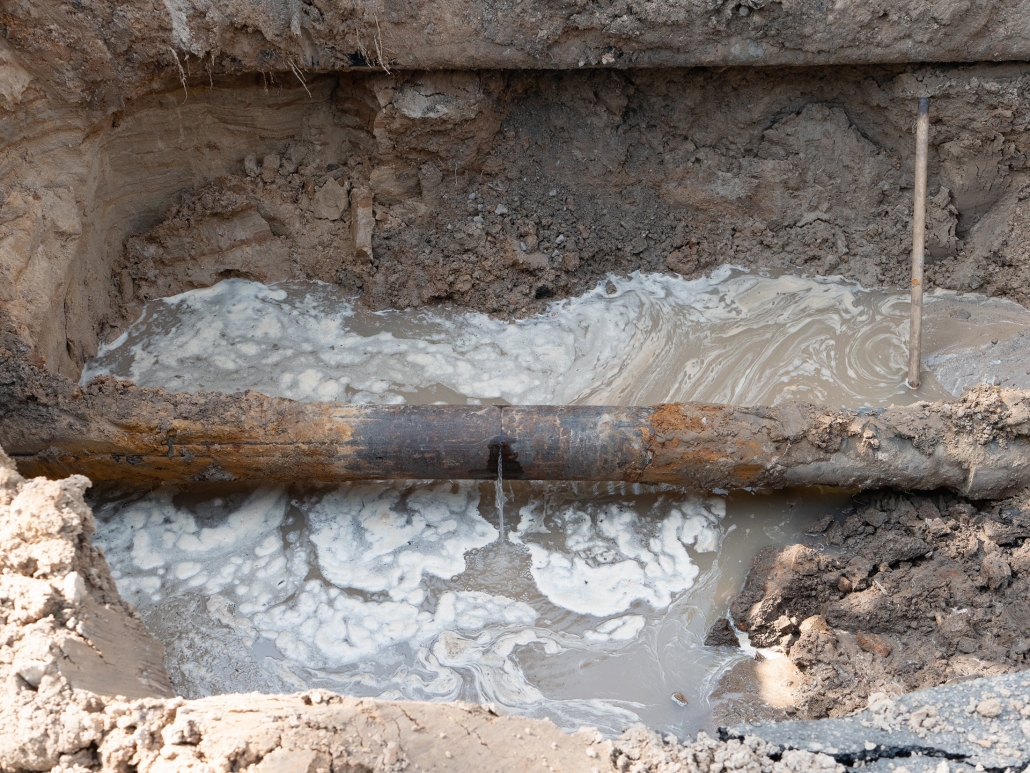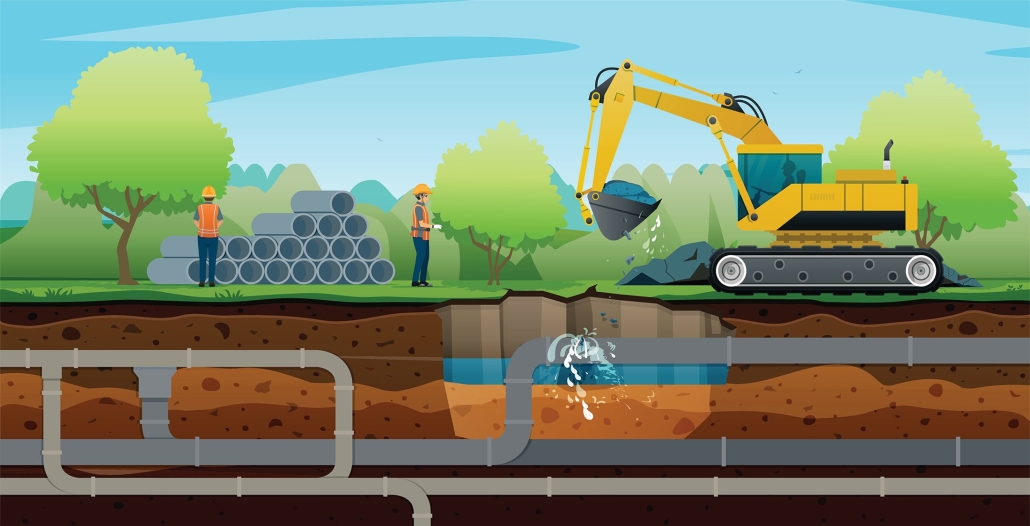Sewage Leak How serious is it?
Sewage leaks are not just a nuisance; they may also pose serious health hazards and cause extensive damage to your property. Understanding how to detect sewer leaks, what causes them, and what steps to take can save you a lot of trouble and expense. This guide will provide you with everything you need to know about dealing with sewer leaks, including when it’s time to call in the professionals.
How to Detect Sewer Leaks
Detecting a sewer leak early can prevent minor issues from becoming major headaches. Here are some signs to watch for:
Unpleasant Odors
A persistent foul smell, indoors or outdoors, can indicate a sewer leak. This odor is often similar to rotten eggs and can be pretty overpowering.
Slow Drains
If water drains slowly from the sinks, bathtubs, or toilets, this could be a sign of a blockage or leak in the sewer line.
Gurgling Noises
Gurgling sounds from your drains or toilet may indicate trapped air in the sewer line due to a leak or blockage.
Lush Patches of Grass
If you notice an unusually green grass area or a lush patch of grass in your yard, it could be a sign that a sewer leak is providing extra nutrients to that area.
Foundation Cracks
Sewer leaks can lead to soil erosion, which can crack your home’s foundation. If you notice new cracks, it’s worth investigating further.
Pest Infestation
A sudden increase in rodents or insects around your home can signify a sewer leak, as these pests are often attracted to moisture and waste.
Common Causes of Sewer Leaks
Understanding what causes sewer leaks can help you take preventive measures. Here are some common culprits:
Tree Roots
With a growing tree, the roots naturally seek out water sources and can infiltrate sewer lines through tiny cracks or joints, eventually causing significant damage.
Corrosion
Over time, sewer pipes, especially cast iron ones, can corrode and weaken, leading to leaks.
Blockages
Kitchen grease, hair, and other debris can accumulate in the sewer line, causing blockages, increasing pressure, and leading to leaks.
Ground Shifting
Natural shifts in the ground caused by construction, earthquakes, or settling can cause sewer lines to crack or become misaligned.
Aging Infrastructure
Older sewer systems are more susceptible to leaks due to wear and tear. Materials like clay and cast iron, commonly used in older systems, are particularly vulnerable.
What to Do if You Suspect a Sewer Leak
If you think you have a sewer leak, acting quickly can minimize damage and repair costs. Here’s what you should do:
Confirm the Leak
Check for the signs mentioned earlier to confirm your suspicion. You can also conduct a simple dye test by adding a few drops of food-grade food coloring to the toilet tank. Then, see if it appears in the bowl without flushing the toilet.
Shut Off the Water Supply
If you confirm a leak, shut off the main water supply to prevent further damage.
Avoid Using Drains
Only use sinks, toilets, or other drains once the issue is resolved to avoid exacerbating it.
Document or write down the affected damaged area.
Take photos or videos of the affected areas for insurance purposes.
When to Call a Professional
While minor blockages can sometimes be dealt with using a plunger or drain snake, sewer leaks are generally not DIY-friendly. Here’s when you should call a professional:
Persistent Symptoms
If you’ve noticed persistent symptoms of a leak despite your efforts, it’s time to call in the experts.
Multiple Affected Areas
If multiple drains in your home show signs of a problem, there is likely a deeper issue in the main sewer line.
Structural Damage
Any signs of structural damage, like foundation cracks or sinkholes, should be addressed by professionals immediately.
Unidentified Source
If you can’t identify the source of the leak, a professional can perform a thorough inspection, often using specialized equipment like cameras to pinpoint the issue.
Health Concerns
If the sewer leak is causing health issues or unbearable odors, immediate professional intervention is crucial.
Resource: EPA’s compliance goal

Conclusion
Sewer leaks can be a severe issue, but knowing how to detect them, understanding their causes, and taking appropriate action can keep your home safe and sanitary. While many minor problems can be handled independently, don’t hesitate to call in professionals for more persistent or severe issues.
Preventive measures like regular inspections and mindful waste disposal can help maintain a healthy sewer system. For more clarification or expert advice, contact or consult a professional plumber.





